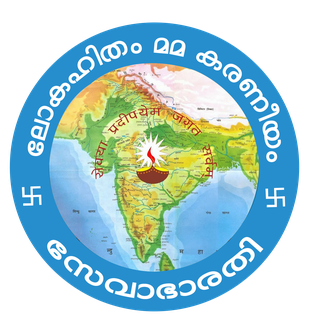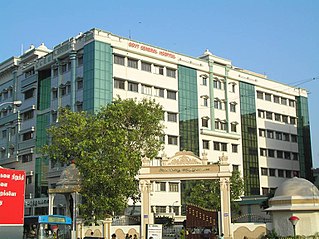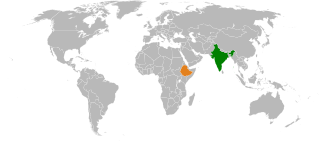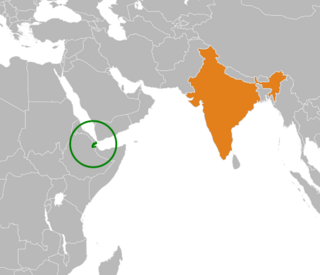Related Research Articles

Avul Pakir Jainulabdeen Abdul KalamBR was an Indian aerospace scientist and statesman who served as the 11th president of India from 2002 to 2007. He was born and raised in Rameswaram, Tamil Nadu and studied physics and aerospace engineering. He spent the next four decades as a scientist and science administrator, mainly at the Defence Research and Development Organisation (DRDO) and Indian Space Research Organisation (ISRO) and was intimately involved in India's civilian space programme and military missile development efforts. He thus came to be known as the Missile Man of India for his work on the development of ballistic missile and launch vehicle technology. He also played a pivotal organisational, technical, and political role in India's Pokhran-II nuclear tests in 1998, the first since the original nuclear test by India in 1974.

Apollo Hospitals Enterprise Limited is an Indian multinational healthcare group headquartered in Chennai. Along with the eponymous hospital chain, the company also operates pharmacies, primary care and diagnostic centres, telehealth clinics, and digital healthcare services among others through its subsidiaries.

The Jawaharlal Institute of Postgraduate Medical Education & Research (JIPMER) is a medical school located at Pondicherry, the capital of the Union Territory of Puducherry, in India. JIPMER is an Institute of National Importance (INI) and a tertiary care referral hospital. It is under the direct administrative control of the Ministry of Health and Family Welfare, and Indian Government, with autonomy to run its internal administration. JIPMER is an Institute of National Importance and a tertiary care referral hospital.

Bharti Airtel Limited, commonly known as (d/b/a) Airtel, is an Indian multinational telecommunications services company based in New Delhi. It operates in 18 countries across South Asia and Africa, as well as the Channel Islands. Currently, Airtel provides 4G and LTE Advanced services all over India and 5G service in selected cities. Currently offered services include fixed-line broadband, and voice services depending upon the country of operation. Airtel had also rolled out its Voice over LTE (VoLTE) technology across all Indian telecom circles. It is the second largest mobile network operator in India and the second largest mobile network operator in the world. Airtel was named India's 2nd most valuable brand in the first ever Brandz ranking by Millward Brown and WPP plc.
G. Madhavan Nair is an Indian space scientist and a former Chairman of the Indian Space Research Organisation, and Secretary to the Department of Space, Government of India. He has also been the Chairman of the Space Commission and Chairman of the Governing Body of the Antrix Corporation, Bangalore. He was Chairman of the Board of Governors of the Indian Institute of Technology Patna until he stepped down due to his involvement in a controversial deal relating to sale of radio spectrum bandwidth involving Antrix. He was subsequently barred from holding any government positions.

Seva Bharati is a non-governmental organization (NGO) working among the economically weaker sections of Indian society, including tribal. It also works among urban slum dwellers and resettlement colonies by introducing welfare and social service programs, such as free medical assistance, free education, and vocational training.
UNESCO Chair of Telemedicine (UNES_CT) is an agency within UNESCO that was founded in 1999.

The School of Medical Science and Technology (SMST) is an educational and research institute affiliated to the Indian Institute of Technology, Kharagpur, India. Founded in 2001, the School of Medical Science and Technology brings together doctors, scientists and engineers to work collaboratively on projects for better healthcare.
Africa–India relations are the historical, political, economic, and cultural connections between India and the African continent.

India–Rwanda relations are the foreign relations between the Republic of India and the Republic of Rwanda. India is represented in Rwanda through its High Commission in Kigali which opened on 15 August 2018. Rwanda has been operating its High Commission in New Delhi since 1999 and appointed its first resident High Commissioner in 2001.

Healthcare in Chennai is provided by both government-run and private hospitals. Chennai attracts about 45 percent of health tourists from abroad arriving in the country and 30 to 40 percent of domestic health tourists. The city has been termed India's health capital. Multi- and super-specialty hospitals across the city bring in an estimated 150 international patients every day. Factors behind the tourists' inflow in the city include low costs, little to no waiting period, and facilities offered at the speciality hospitals in the city.

India–Uganda relations are bilateral relations between the Republic of India and the Republic of Uganda. India and Uganda established diplomatic relations in 1965 and each maintain a High Commission in the other's capital. The Indian High Commission in Kampala has concurrent accreditation to Burundi. Uganda hosts a large Indian community and India–Uganda relations cover a broad range of sectors including political, economic, commercial, cultural and scientific cooperation.

Ethiopia–India relations have existed for almost two millennia. Modern diplomatic relations between India and Ethiopia were established at the level of legations in July 1948, after the independence of India. The relationship was raised to the ambassadorial level in 1952. India maintains an embassy in Addis Ababa and Ethiopia in New Delhi. The two countries have enjoyed close and friendly relations with India supporting Ethiopian developmental efforts while Ethiopia has supported Indian interests such as its claim to a permanent seat on the United Nations Security Council. India and Ethiopia share a common understanding on such issues as cross-border international terrorism, the need and direction for reform of the United Nations, and the importance of action on climate change.

Telecommunications Consultants India Limited (TCIL) is a central public sector undertaking. It is under the ownership of the Department of Telecommunications, Ministry of Communications, Government of India. It was set up in 1978 to give consultations in fields of Telecommunications to developing countries around the world. Started with an initial investment of 10lakh. TCIL is present in almost 80 countries, mainly in the Middle East, Africa and Europe.

Airtel India commonly known as Airtel, is the second largest provider of mobile telephony and third largest provider of fixed telephony in India, and is also a provider of broadband and subscription television services. The brand is operated by several subsidiaries of Bharti Airtel, with Bharti Hexacom and Bharti Telemedia providing broadband fixed line services and Bharti Infratel providing telecom passive infrastructure service such as telecom equipment and telecom towers. Currently, Airtel provides 4G and 4G+ services all over India and 5G service in selected cities. Currently offered services include fixed-line broadband, and voice services depending upon the country of operation. Airtel had also rolled out its VoLTE technology across all Indian telecom circles.

Djibouti–India relations are bilateral relations between Djibouti and India. Djibouti has an embassy in New Delhi and a Consulate-General in Mumbai. India has an embassy in Djibouti City.
Republic of Congo–India relations are the international relations that exist between India and the Congo. Congo maintains an embassy in New Delhi. India opened an embassy in Brazzaville in November 2019.

India–Sierra Leone relations refers to the international relations that exist between India and Sierra Leone. India maintains a High Commission in Freetown. Sierra Leone does not have a resident diplomatic mission in India. The Sierra Leonean embassy in Abu Dhabi, United Arab Emirates is accredited to India.

Arun Kumar Tiwari is an Indian missile scientist, author, and professor. He has written several books and co-authored 5 books with Dr. APJ Abdul Kalam, including Wings of Fire, the autobiography of Dr. APJ Abdul Kalam, former president of India. Published in 1999, Wings of Fire has become a modern classic with over 30 reprints selling over a million copies and was translated into 18 languages.
Indian aid to Africa is aid provided by the Government of India to African governments. India provides development assistance to Africa through lines of credit, capacity building, duty free and preferential market access, educational scholarships, and humanitarian assistance. Between 2002 and 2021, India provided over US$51 billion in concessions to African countries. India donated 150 metric tons of medical aid to 25 African countries to help fight the COVID-19 pandemic, and supplied over 24.7 million doses of COVID vaccines to 42 countries in Africa as of February 2021.
References
- 1 2 3 "Pan-African e-network for education and health care". The Hindu . October 11, 2009. Archived from the original on October 14, 2009. Retrieved 4 January 2013.
- 1 2 3 "Ethiopia Pilot Project Highlights" (PDF). Telecommunications Connsultants India Limited. Retrieved 4 January 2013.
- ↑ "Statement by H.E. Mr. Gurjit Singh, Ambassador of India to Ethiopia and Djibouti and Representative of India to the African Union and the UNECA at the World Information Technology Forum" . Retrieved 4 January 2013.
- ↑ "Pan-African e-network project launched". The Hindu Businessline. Retrieved 4 January 2013.
- ↑ "India kicks off pan-African e-network project". InfoWorld. September 8, 2006. Retrieved 4 January 2013.
- 1 2 3 4 "Africa: Pan African e- Network: a model of "South- South cooperation"". Pambazuka News. 24 April 2009. Archived from the original on 14 July 2014. Retrieved 4 January 2013.
- 1 2 "Govt's parting gift to Kalam: OK to funds for his pan-African e-network". The Indian Express. July 5, 2007. Retrieved 4 January 2013.
- ↑ "Pan African e-Network Project for Tele-education and Tele-medicine:Cote d'Ivoire, Gambia and Djibouti sign agreements" . Retrieved 4 January 2013.
- ↑ "India launches phase II of African e-network project". The Hindu. August 19, 2010. Retrieved 4 January 2013.
- 1 2 "India launches African e-network project". The Hindustan Times. August 17, 2010. Retrieved 4 January 2013.
- ↑ "EAM's remarks at inauguration of the second-phase of GOI's Pan African e-Network project". Ministry of External Affairs, Government of India. Retrieved 4 January 2013.
- ↑ Kalam, A.P.J. Abdul. "PAN-AFRICAN E-NETWORK" . Retrieved 4 January 2013.
- ↑ "Official Launch of e-VidyaBharti and e-ArogyaBharti Project by External Affairs Minister (October 09, 2019)". www.mea.gov.in. Retrieved 13 November 2021.
- ↑ "Telemedicine links Africans to Indian expertise". HT Mint. April 4, 2008. Retrieved 4 January 2013.
- ↑ "The cross-continental classroom: from India to Tanzania" . Retrieved 4 January 2013.
- ↑ "Pan African e-Network project". The Hindu . October 12, 2010. Archived from the original on February 11, 2011. Retrieved 4 January 2013.
- ↑ "Telemedicine project with links to 53 remote African hospitals launched". The Hindu . October 8, 2009. Archived from the original on October 11, 2009. Retrieved 4 January 2013.
- ↑ "India offers $5-b credit line to Africa". The Hindu Businessline. 24 May 2011. Retrieved 4 January 2013.
- ↑ "India-African virtual university: opportunities and challenges" . Retrieved 4 January 2013.
- ↑ "India's Pan-African network gets Hermes prize". Deccan Herald. 13 August 2010. Retrieved 4 January 2013.